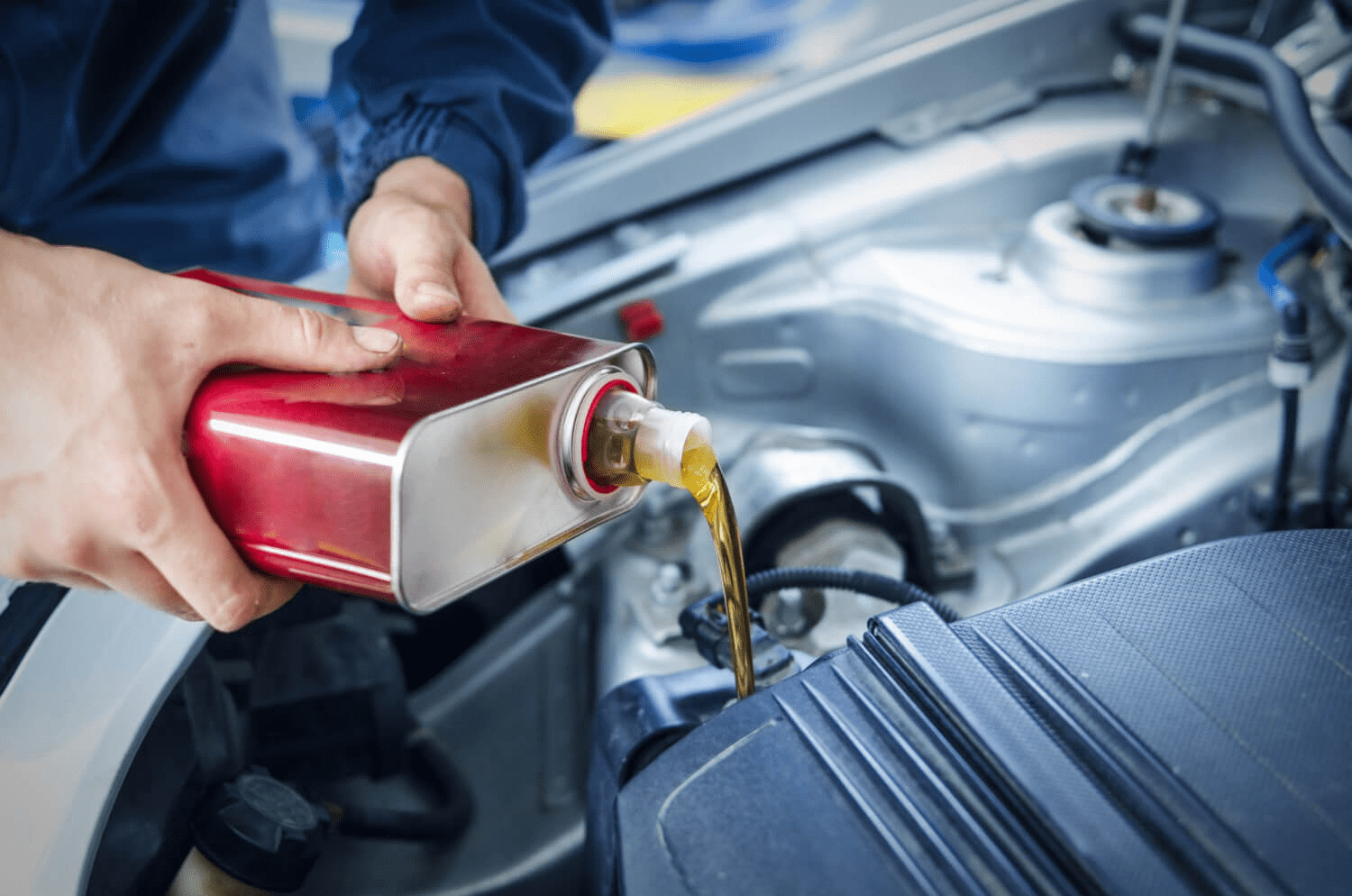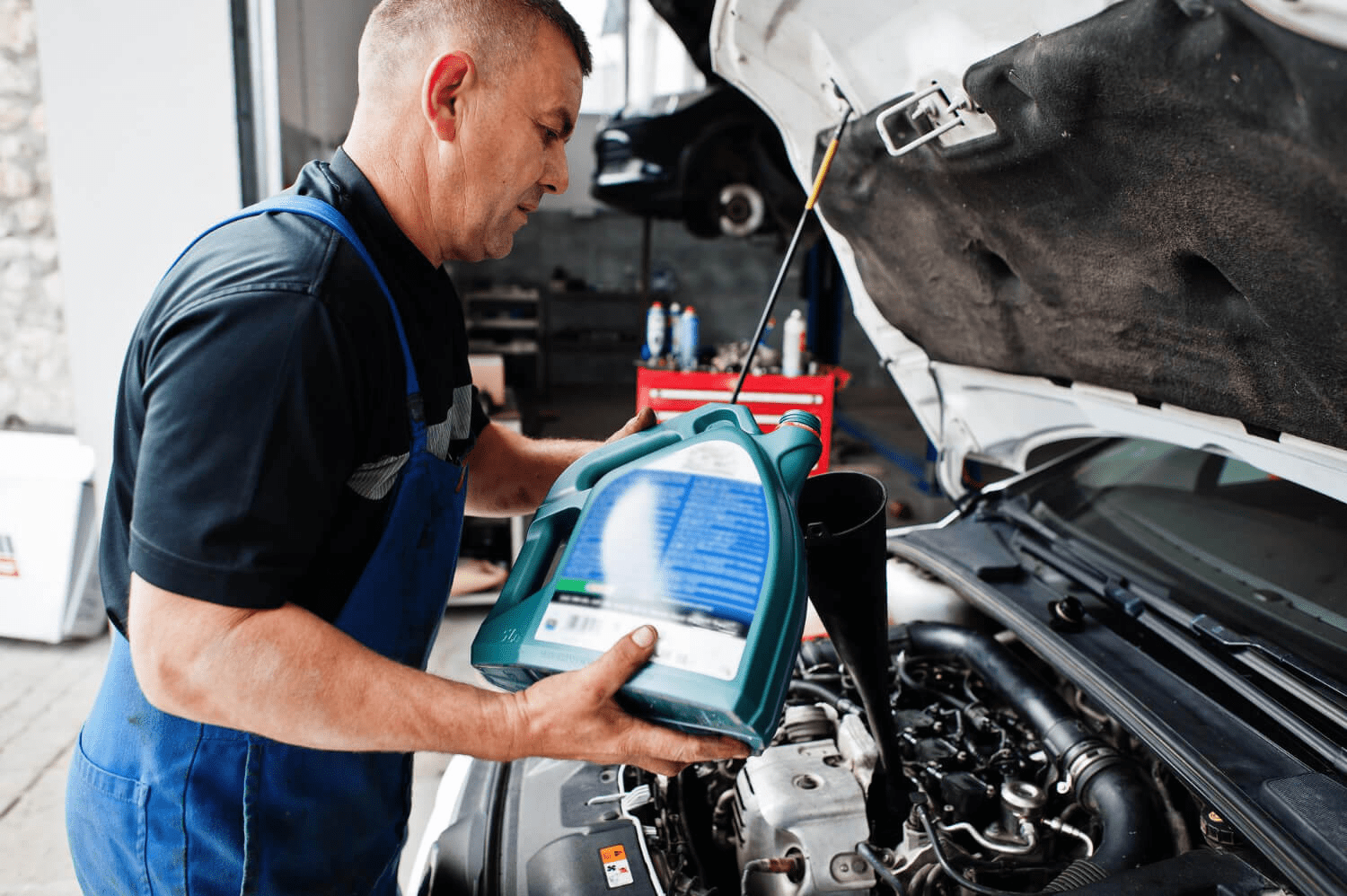Choosing the right engine oil for your car is crucial to enhance performance and extend vehicle longevity. The ideal oil safeguards your engine, bolsters your car’s efficiency, and minimizes maintenance costs in the long run.
Whether you’re a seasoned driver or a car novice, understanding the elements of engine oil can set off a smoother ride towards better fuel efficiency, fewer engine problems, and optimal car performance.
This article will navigate you through various types of engine oils, their roles, characteristics, and how to make an informed choice when selecting the best engine oil for your car.
Understanding the Role of Engine Oil
Engine oil or motor oil, often regarded as the bloodstream of your car, plays a pivotal role in car efficiency and performance. It lubricates the myriad of moving parts within the engine, reducing friction and preventing premature wear and tear. The oil carries away heat that can otherwise build up in the engine’s moving parts and lead to overheating, a common culprit behind engine breakdowns.

Additionally, high-quality engine oils have special additives that help clean the engine by removing harmful grime and pollutants. It’s akin to having a tiny, relentless squad of janitors that keep your engine clean and pristine.
In essence, investing in the right engine oil equates to prolonging your engine’s life and conserving its capacity to function optimally.
Differences between Types of Engine Oil (Mineral vs Synthetic Oil)
When it comes to engine oils, not all are created equal. The market offers a banquet of oil variants including mineral, synthetic, and even synthetic blend semi-synthetic oil types, with synthetic blends all boasting unique characteristics, performance implications, and cost considerations.
1. Mineral Oils
Mineral oils, derived directly from crude oil, are the traditional, least processed of synthetic motor oils, and hence the most economical type. They provide ample lubrication and protection, especially for older model vehicles designed before synthetic oils became widely popular.
2. Synthetic Oils
Synthetic engine oil, on the other hand, are chemically engineered in labs and far superior to their mineral counterparts. They offer enhanced lubrication, maintain viscosity over a wider range of temperatures, and resist breakdown better, hence extending their life and the life of your engine. Moreover, the best synthetic oils are designed to offer improved engine cleaning and protection against the buildup of harmful deposits.
Speaking of synthetic engine oils, AirTec High-Class Micro-Ceramic Oil Additive from our store AET Systems Inc, is a popular choice. It is chemically engineered and known for its enhanced lubrication and high-performance characteristics even in extreme temperatures.
AirTec High-Class Micro-Ceramic Oil Additive
HIGH -CLASS Micro-ceramic lubricating oil additive works with all conventional, semi- and fully synthetic engine and gear oils. It is a selected combination of the most modern high-tech solid ceramic lubricants, making it a world leader in ceramic additives.
shop now3. Semi-synthetic Oils
Semi-synthetic oils occupy the middle ground between mineral and full synthetic motor oil in terms of performance and price. Essentially, they are mineral oils fortified with a splash of full synthetic oil and additives, offering a trade-off between price and performance that suits many modern vehicles.
How to Choose the Engine Oil for Your Car?
Choosing the right engine oil involves considering several factors, including car’s age, manufacturer’s recommendations, driving conditions, and oil’s viscosity among others.
To start, check your manufacturer’s recommendations. Every vehicle comes with an owner’s handbook that provides specific guidelines on the type of oil, its viscosity, and change interval best suited to your particular car model.
Next, consider the age and mileage of your car. Older vehicles with significant high mileage often benefit from high-mileage oils formulated with unique additives addressing common problems associated with older engines.

Driving conditions are another crucial factor. Extreme temperatures, cold or hot weather, driving short distances regularly, or aggressive driving styles can all influence the type of engine oil you need.
Lastly, consider the engine oil’s viscosity. Viscosity rating of the engine oil, denoted by values like 5W-30, indicates its performance at different temperatures – lower values for cold environments and vice versa. We will consider all the important factors in detail below to help you with your decision.
Air-Tec HIGH-CLASS Automotive Oil Additive
The complex organic compounds found in HIGH-CLASS Automotive Oil Additive provide unmatched friction reduction and exceptional wear reduction and protection.
shop nowViscosity Ratings & What They Mean
Viscosity is a measure of a fluid’s resistance to flow. In the context of engine oil, it is crucial to maintain optimal viscosity for several reasons: it helps reduce engine wear and tear, minimizes friction between engine components, and ensures that the oil flows smoothly throughout the engine. Viscosity ratings, such as 5W-30 and 10W-40, help car owners select the right engine oil for their specific vehicle.

These viscosity ratings are alphanumeric codes that provide information about an oil’s ability to perform in specific temperature ranges. The first number followed by the letter “W” (which stands for “winter”) signifies how well the oil flows at low or cold temperatures. The lower the number, the better the oil flows in cold weather. The second number indicates the oil’s performance at high temperatures, with higher numbers implying better flow in warmer conditions.
For example, a 5W-30 engine oil has better low-temperature performance than a 10W-40 oil, while the 10W-40 would perform better in high-temperature situations. To choose the right motor oil and viscosity rating, consult your vehicle’s owner’s manual or the manufacturer’s recommendations.
Impact of Driving Conditions on Oil Choice
Driving conditions can significantly impact your choice of engine oil. Temperature, distance, and driving style are all factors that determine the type of motor oil is best suited for your car.
Temperature: Different oils perform better at different temperature ranges. If you reside in colder climates, you should opt for an oil with a lower “W” rating, such as 0W or 5W. In warmer weather conditions, a higher viscosity-rating oil (e.g., 10W, 15W) might be more appropriate.

Distance: The distances you usually drive also play a role in selecting engine oil. Shorter drives can cause the engine oil to degrade faster, as the engine doesn’t reach its optimal operating temperature. In such circumstances, a high-performance or synthetic oil with good viscosity stability may be a more suitable choice.
Driving style: Aggressive or high-speed driving can increase stress on the engine, necessitating a higher-performance oil that maintains its viscosity and properties under extreme conditions. In contrast, moderate or relaxed driving styles may permit the use of standard oil.
Understanding Oil Additives & Their Importance
Oil additives are chemical compounds that enhance the performance and characteristics of engine oils. Some of the most common additives found in engine oils include detergents, antioxidants, and anti-wear agents, each contributing to improved engine oil performance.
Detergents
Detergents are responsible for maintaining cleanliness inside the engine by removing deposits and preventing sludge formation and oil leaks. They help to neutralize acids and clean engine parts, ensuring efficient engine operation.
Antioxidants
Engine oils are exposed to high temperatures, leading to the production of oxidation products that can degrade the oil and reduce its performance. Antioxidants slow down this oxidation process and extend the life of the engine oil.
Anti-wear agents
These additives protect diesel engines and engine parts from wear and tear by forming a protective film on metal surfaces, reducing friction, engine protection, and preventing engine damage.
When selecting an engine oil, consider the additives included and their compatibility with your specific engine type and driving conditions. An oil with a high-quality additive package can improve engine performance, prolong its life, and optimize your car’s overall operation.
Impressed? Check out products like Air-Tec HIGH-CLASS Automotive Oil Additive in our store for a unique blend of additives that can increase horsepower and torque to your engine, improve fuel economy, and reduce wear and tear, extending engine life.
When to Consider High-Mileage Oils
High-mileage oils are specially designed to cater to high mileage vehicles and the unique needs of older engines with significant miles on them—typically above 75,000 miles. These engine oils come loaded with specific additives designed to high performance vehicles address common issues found in these higher mileage engines.
High-mileage oils often contain seal conditioners, which help to flex hardened seals back into their original form, in turn reducing oil leakage common to older vehicles. They also contain higher levels of antioxidants—an additive crucial to prevent oil breakdown and to extend oil life. Other additives like detergents ensure your engine remains clean, while anti-wear agents provide critical engine parts an added layer of protection.
The decision to transition to high mileage motor oil isn’t solely about the age and mileage of conventional motor oils in your car though; it also depends on the signs your vehicle shows. If your older vehicle is burning or leaking oil, suffering from decreasing performance or increased engine noise, a high-mileage oil may help to alleviate these symptoms due to its specific formulation. Always consult a professional mechanic or your owner’s manual for guidance.
Air-Tec HIGH CLASS Injector Cleaner
Air-Tec High Class Injector Cleaner cleans an engine’s fuel system, removing harmful oil, carbon, sludge, and resin build up. All Air-Tec High Class products are produced in Germany and held to the industry highest standards, ensuring our products meet and exceed your expectations.
shop nowCar Manufacturer’s Recommendations
Your car’s manufacturer best understands the precise requirements of your engine, so it’s critical to follow the car manufacturer’s recommendations when choosing engine oil. They provide these details through the owner’s manual enclosed with your car at the time of purchase.
The manual contains specific guidelines about the type of oil, viscosity rating, total oil capacity, and the oil change interval that is optimal for your engine. Neglecting these guidelines could potentially harm your engine, reduce its efficiency, take engine life, and shorten its lifespan.

Moreover, it’s crucial to note that the chosen engine oil can, indeed, influence warranty terms set by the manufacturer. Some car manufacturers will stipulate that you must use a specific type or brand of oil to keep the warranty intact. If you use the wrong or subpar synthetic engine oil, and the vehicle develops problems as a result, your warranty claim could be denied.
In summary, while selecting engine oil, consider not only its viscosity, additives, and your driving conditions, but also the mileage of your vehicle and most notably, the recommendations from your car manufacturer. Remember, keeping your engine well-lubricated with the right oil is key to ensuring its long-term performance and reliability.
Environmental Consideration
Selecting engine oil not only affects your car’s performance but also has broader environmental implications. Oil production and disposal contribute to environmental pollution, but it’s possible to make more eco-friendly choices.
Full synthetic engine oil, for instance, often last longer than most conventional oils and motor oils, which means fewer oil changes and less waste. Recycling used engine oil is another green practice; many service stations, auto shops, and recycling centers accept and recycle used motor oil.
Additionally, consider energy-conserving oils. Typically marked with an “EC” logo, these oils help reduce the amount of fuel your vehicle consumes, indirectly contributing to the reduction of greenhouse gas emissions. Balancing the needs of your car and oil consumption with environmental impact contributes to a more sustainable, planet-friendly lifestyle.
At AET Systems Inc, we are proud of the environmental integrity of our products. For instance, our Air-Tec Frostline -40 Premium Diesel Antigel is not only performance-oriented but also designed with responsible oil consumption and minimal environmental impact.
AirTec Frostline -40 Premium Diesel Antigel
AirTec Frostline -40 keeps your engine running smoothly all winter long! Mixing Ratios: 1 liter treats 100 gallons of diesel fuel, lowering the gelling temperature by more than 30 degrees Fahrenheit!
shop nowConclusion
Choosing the right engine oil is as essential as regular engine check-ups to ensure your car performs at its best. Factor in elements such as the oil’s viscosity rating, the additives it contains, your driving conditions, your vehicle’s age, your manufacturer’s recommendation, and the environmental impact when making your engine oil selection.
By considering all these points, you can make an informed decision about the engine oil that best suits your specific needs. In turn, this selection will help you maintain your vehicle’s engine health, performance, and longevity.
FAQs
How do I choose the right engine oil?
Choosing the right engine oil means considering several factors, including the oil’s viscosity rating, its additives, driving conditions, your car’s mileage, the car manufacturer’s recommendation, and its environmental impact. Refer to your car’s owner’s manual for specific guidance on engine oil selection.
Which is better 5W-30 or 10W 30 motor oil?
Neither is “better” universally—it depends on your specific circumstances. 5W-30 oil performs better in colder climates whereas 10W-30 is a thicker oil better suited for warmer weather conditions. Consult your vehicle’s manual or a professional mechanic for advice tailored to your car and local climate.
Is Mobil the best engine oil?
The quality of engine oil can vary greatly, but specific brands like Mobil have a reputation for producing high-quality oils. However, designations like “the best” ultimately depend on the specific needs of your vehicle, your driving habits, and preferences.
How do I know which oil to put in my car?
Your best resource for determining the right oil for your car is the manufacturer’s owner’s manual, as it provides specific recommendations based on the vehicle’s design, engine, and performance considerations. If in doubt, consult a professional mechanic or contact the manufacturer’s customer service.










